School Highlights
Manchester Community College serves 5,080 students (15% of students are full-time).
The college's student:teacher ratio of 27:1 is higher than the state community college average of 19:1.
Minority enrollment is 35% of the student body (majority Hispanic and Black), which is more than the state average of 33%.
Quick Stats (2025)
- Enrollment: 5,080 students
- In-state tuition: $6,848
- Out-state tuition: $15,008
- Student:teacher ratio: 27:1
- Minority enrollment: 35%
- Source: Integrated Postsecondary Education Data System (IPEDS)
Top Rankings
Manchester Community College ranks among the top 20% of public schools in New Hampshire for:
Category
Attribute
Community Size
School Overview
The teacher population of 190 teachers has stayed relatively flat over five years.
Manchester Community College
(NH) Community College Avg.
Carnegie Classification
Associate's Colleges: Mixed Transfer/Career & Technical-High Nontraditional
Associate's Colleges: Mixed Transfer/Career & Technical-High Nontraditional
Institution Level
At least 2 but less than 4 years
At least 2 but less than 4 years
Institution Control
Public
Public
Total Faculty
190 staff
145 staff
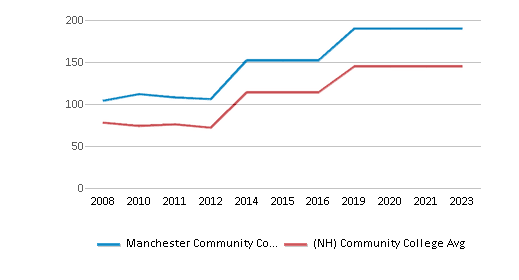
School Calendar
Student Body
The student population of Manchester Community College has grown by 98% over five years.
The student:teacher ratio of 27:1 has increased from 12:1 over five years.
The Manchester Community College diversity score of 0.57 is more than the state average of 0.52. The school's diversity has grown by 13% over five years.
Total Enrollment
5,080 students
1,818 students
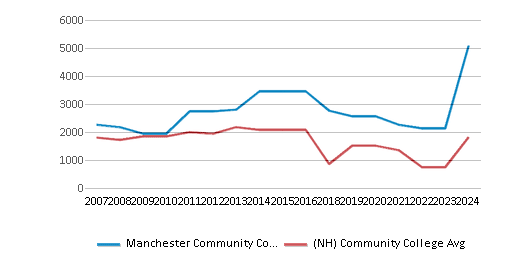
Student : Teacher Ratio
27:1
19:1
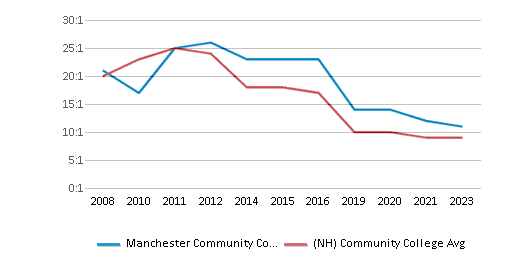
# Full-Time Students
777 students
276 students
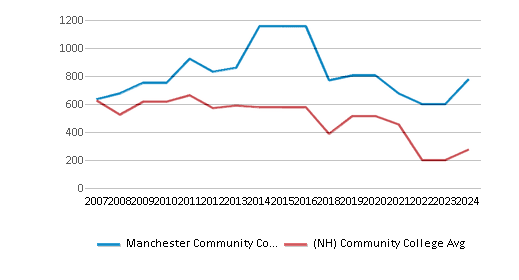
# Part-Time Students
4,303 students
1,659 students
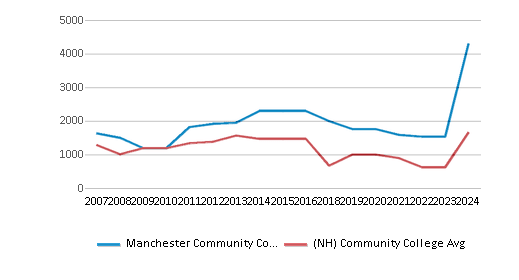
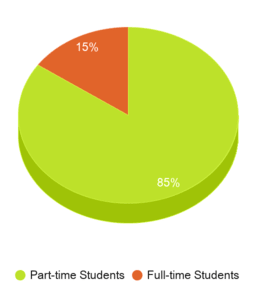
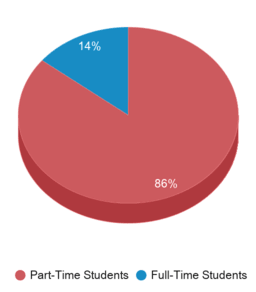
# Enrollment Undergraduate
508 students
298 students
# Full-Time Undergraduate Students
777 students
276 students
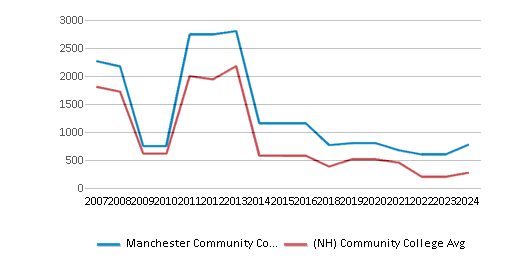
# Part-Time Undergraduate Students
4,303 students
1,659 students
Total Dormitory Capacity
n/a
112 students
% American Indian/Alaskan
2%
2%
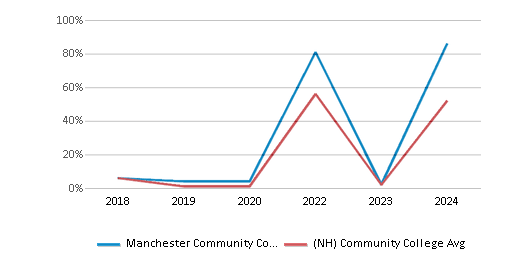
% Asian
4%
4%
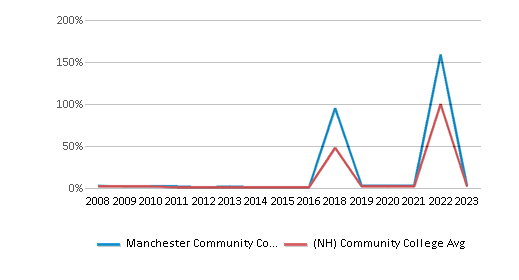
% Hispanic
7%
6%
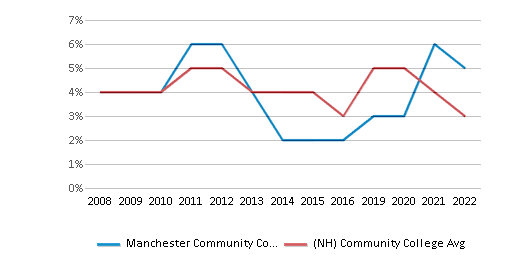
% Black
5%
3%
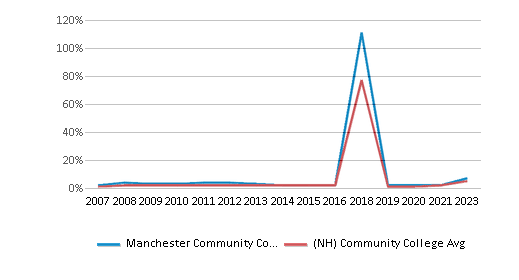
% White
65%
67%
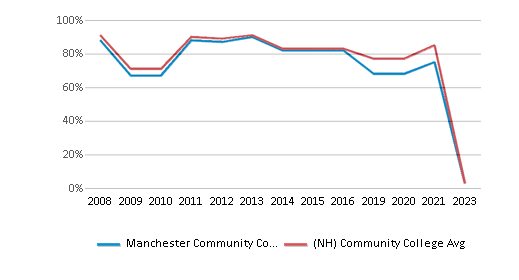
% Hawaiian
n/a
n/a
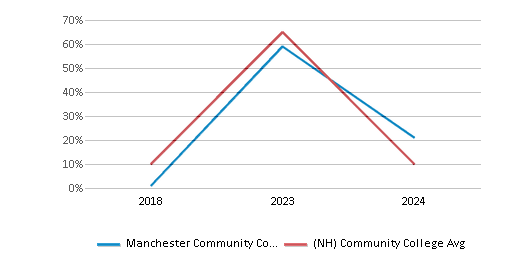
% Two or more races
2%
2%
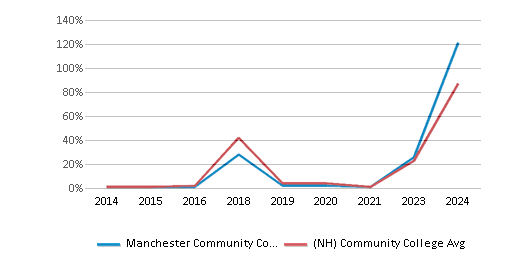
% Unknown races
15%
16%
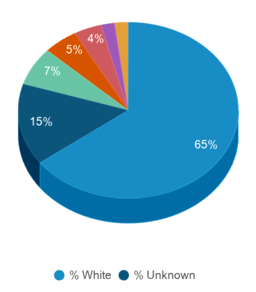
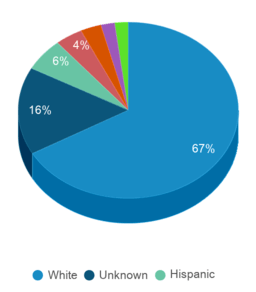
Diversity Score
0.57
0.52
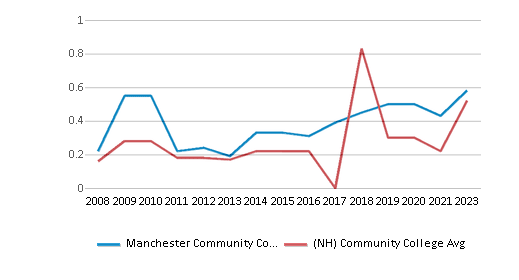
College Completion Rate (Students who graduate in less than 4 years)
0.3741%
0.3469%
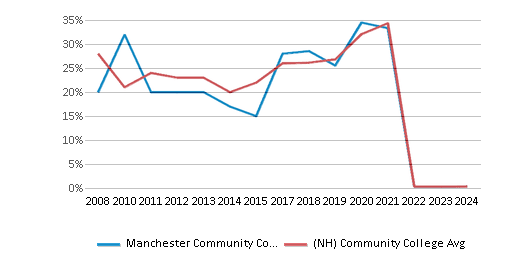
Average Graduate Earnings (10 Years)
$38,500
$36,800
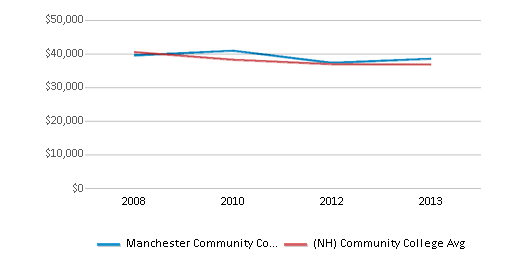
Tuition and Acceptance Rate
The public in-state tuition of $6,848 is less than the state average of $6,952. The in-state tuition has stayed relatively flat over four years.
The public out-state tuition of $15,008 is less than the state average of $15,095. The out-state tuition has stayed relatively flat over four years.
In-State Tuition Fees
$6,848
$6,952
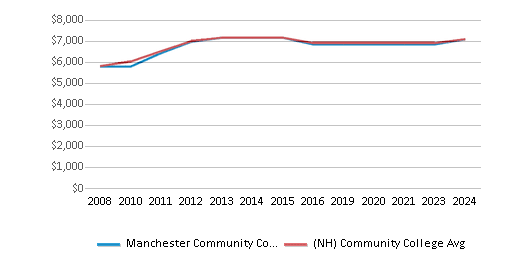
Out-State Tuition Fees
$15,008
$15,095
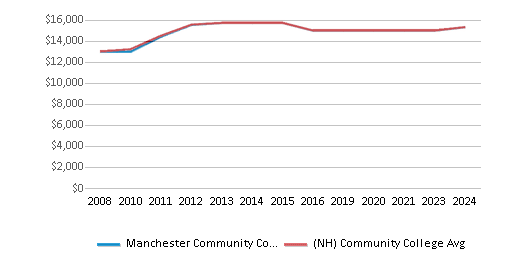
% Students Receiving Some Financial Aid
64%
75%
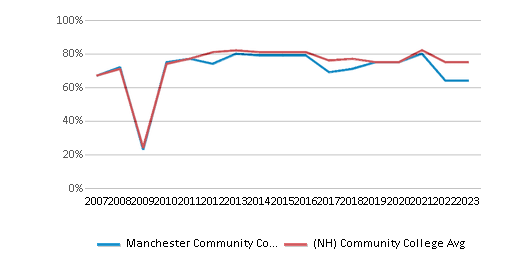
Median Debt for Graduates
$19,000
$14,250
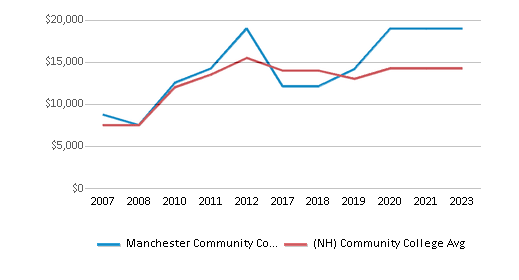
Median Debt for Dropouts
$8,750
$7,196
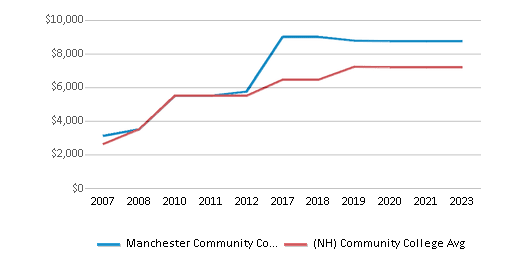
Source: 2024 (or latest year available) Integrated Postsecondary Education Data System (IPEDS)
Frequently Asked Questions
How much does Manchester Community College cost?
Manchester Community College's tuition is approximately $6,848 for In-State students and $15,008 for Out-State students.
What schools are Manchester Community College often compared to?
Manchester Community Collegeis often viewed alongside schools like NHTI-Concord's Community College, Nashua Community College by visitors of our site.
What is Manchester Community College's ranking?
Manchester Community College ranks among the top 20% of community college in New Hampshire for: Largest student body.
In what neighborhood is Manchester Community College located?
Manchester Community College is located in the West Side neighborhood of Manchester, NH.
Recent Articles

Obtaining Your Bachelor's Degree at a Community College
Explore the evolving landscape of community colleges offering bachelor's degrees, addressing affordability, accessibility, and workforce needs.

A to Z of Community College Certificates and Courses
From business and healthcare to technology and skilled trades, the article showcases the breadth of options available to students seeking to enhance their knowledge, develop new skills, or pursue career advancement.

What is a Community College?
This comprehensive guide explains what a community college is, its history, and its role in higher education. It covers the types of programs offered, differences from four-year colleges, benefits of attending, and important considerations for prospective students, providing valuable insights for those exploring educational options.






